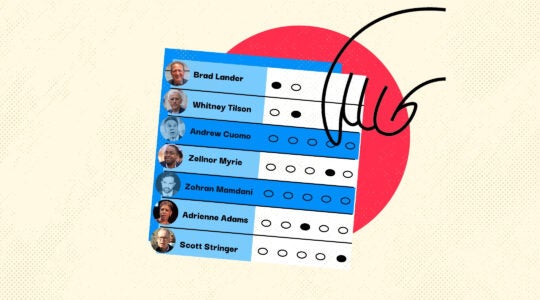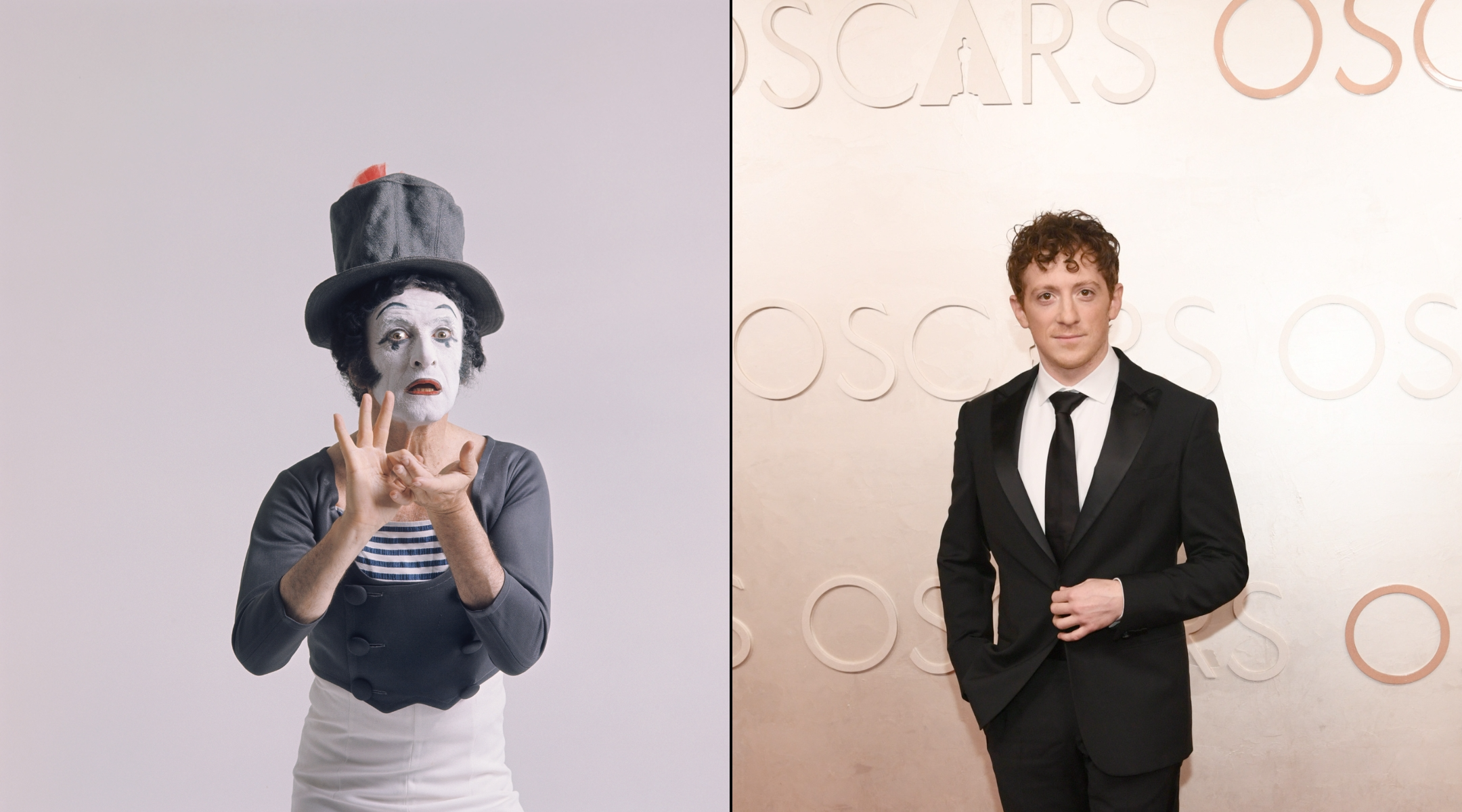Jerusalem — In an apparent about-face on a deal hammered out earlier this year among Israel’s Interior Ministry, the Jewish Agency and the Chief Rabbinate, an Orthodox convert whose conversion took place in New York was threatened with expulsion from Israel, The Jewish Week has learned.
The deal stipulated that the Interior Ministry would no longer consult with the Chief Rabbinate on the civil matter of immigration but instead would consult with the Jewish Agency. But documents obtained by The Jewish Week reveal that it was the Chief Rabbinate that rejected the woman convert, saying she isn’t Jewish.
The convert, “Sivan” (her chosen Hebrew name), had requested permanent residency after the Interior Ministry refused to issue her another tourist visa (she has lived in Israel at various times) received the expulsion order on Nov. 16, two days after her Nov. 14 expulsion date.
She’s still in Israel, “living day to day,” the young woman said. After discussing the problem with her converting rabbi, she contacted ITIM, an organization that helps converts and others navigate government bureaucracy. Her case is still pending.
“I come home and open my computer every day with dread, looking for an e-mail saying a decision has been made. I don’t have much hope at this point that I’ll receive the answer I’m hoping for,” Sivan said.
Even worse, she said, was the Interior Ministry’s threat to never issue her another visa “since I’ve spent so much time here in the past, and the only way to continue living here would be permanent residency,” Sivan said. “I’m faced with the possibility of not even being able to visit.”
The ministry’s decision to expel an Orthodox convert from Israel proves “the treatment of Orthodox converts has reached new lows,” said Rabbi Seth Farber, ITIM’s director, who has handled two such cases in the past couple of months.
Documents obtained by The Jewish Week reveal that the Interior Ministry asked the Chief Rabbinate to decide whether Sivan’s conversion — performed by a well-known Orthodox rabbi of an Orthodox synagogue in Manhattan — met the criteria for aliyah.
This despite the fact that the Chief Rabbinate has no jurisdiction over immigration, which is a civil matter. According to Israeli government protocols signed by the Interior Ministry earlier this year, the ministry must consult with the Jewish Agency on whether the converting rabbis in question are recognized authorities, and whether the convert is considered Jewish by his or her own community in the diaspora.
Interior Ministry letters confirm that it was the Rabbinate that nixed Sivan’s application.
During the past month, Rabbi Farber said, ITIM has asked for clarifications on two cases from the ministry — one of them Sivan’s, the other for a convert from California — to determine whether consultations with the Rabbinate are ministry policy or a “bureaucratic blunder.”
“Either way, I’m at a loss for words,” Rabbi Farber said. “This shows the ever-widening gap between Israel’s Interior Ministry and the world Jewish community.”
In response, the organization received two letters from regional Interior Ministry officials stating they had refused official status to the American converts “because the Chief Rabbinate does not recognize the convert’s Jewishness.”
That’s especially galling, Rabbi Farber said, given that back in February ITIM sued the Interior Ministry over this very behavior, after nearly 20 Orthodox converts from the diaspora complained they had been denied the right to make aliyah.
Following the lawsuit, the ministry submitted a document to the Knesset outlining the new rules, “and we thought they were implementing them,” Rabbi Farber said. “The Interior Ministry isn’t supposed to be consulting the Rabbinate.”
Haviv Rettig Gur, spokesman for the Jewish Agency, said the ministry’s reliance on the Rabbinate “was a violation of the agreement with the Ministry of the Interior. We checked and can confirm that the rabbis who conducted the conversion are recognized for the purposes of aliyah. This conversion is completely acceptable.”
Gur said that Jewish Agency Chairman of the Executive Natan Sharansky “will be communicating” with Interior Minister Eli Yishai “to determine why the agreement reached between us many months ago wasn’t upheld.”
The Interior Ministry did not respond by press time Tuesday, but said it would have a comment on Wednesday.
[A spokesperson for Interior Ministry’s Population and immigration Authority told The Jewish Week Wednesday, “The Authority is committed to the process that was detailed in the letter sent by the director of the authority to MK Danny Danon,” a reference to the deal it signed off on earlier this year.]
Rabbi Farber called it “ironic” that diaspora Reform and Conservative converts generally experience few problems related to aliyah because they are vetted by the heads of the Reform and Conservative leadership in Israel.
“The Orthodox world is much more diffuse,” and there is no single Orthodox authority, he said. “But the Jewish Agency knows these communities and has the tools to determine whether someone is Jewish.”
While Orthodox converts are obviously the ones most affected by the unprecedented scrutiny and, in an increasing number of cases, rejection of their Jewishness, the rabbis who converted them suffer too.
“I feel this is a bad reflection on him, and he’s such a great man and it’s a great synagogue, and I just don’t understand,” Sivan said of the well-known rabbi who converted her. “I’m sad for me and even more so for him. It’s humiliating.”
Sivan’s rabbi spoke on condition of anonymity.
“The State of Israel commits a travesty by allowing the Chief Rabbinate to be the deciding body regarding the Jewish status of Orthodox converts. It has taken a hostile and extreme position vis-à-vis the majority of Orthodox rabbis in the diaspora, and only chooses to recognize as Jewish those converts who subscribe to haredi [ultra-Orthodox] views espoused by the Chief Rabbinate.
“How much longer can the Jewish people and the citizens of Israel put up with an obstructionist, xenophobic and inept Chief Rabbinate?” the rabbi asked.
Given the chance, Sivan would ask the Interior Ministry one question:
“Why am I considered Jewish everywhere except Israel?”
The New York Jewish Week brings you the stories behind the headlines, keeping you connected to Jewish life in New York. Help sustain the reporting you trust by donating today.




